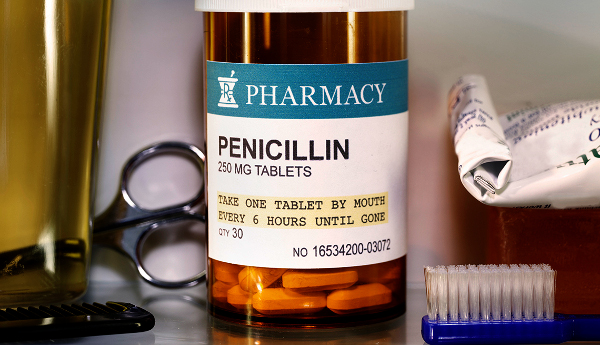In a bid to fight drug resistance and tackle rheumatic heart disease, the Government of India is planning a revival of penicillin, one of the oldest antibiotics known to man. Not many organisms have developed resistance to it yet.
Penicillin went out of production in India because of unrealistic price control, officials said. The government is now planning to procure penicillin centrally for three years and give it to all children between 5-15 years who have a sore throat, at least once. The drug will be dispensed through primary health centres or administered by ASHAs.
A committee has been formed with officials from the department of health research to finalise the contours of the plan to tackle rheumatic fever and heart disease burden and revive penicillin.
A senior health ministry official said, “We are looking at a plan to deal with rheumatic fever and rheumatic heart disease load and are trying to revive penicillin availability because it is the cheapest option for rheumatic fever treatment. We are exploring various options including talking to the National Pharmaceutical Pricing Authority to take it off the price control list. Also, to kickstart production, we are looking at procuring the medicine centrally — enough stock for three years so that manufacturers are encouraged to restart production.”
Penicillin, discovered in 1928, is still the first line antibiotic in many western countries, but it gradually went out of the Indian market even though some of its more expensive derivatives continue to be prescribed.
Population-based studies indicate the prevalence of rheumatic heart disease in India to be about 2/1000 population. However, surveys conducted in school children in the age group of 5-16 years by ICMR gives overall prevalence of 6/1000. Rheumatic fever is endemic in India and remains one of the major causes of cardiovascular disease, accounting for nearly 25-45% of acquired heart disease. Not all sore throats go on to become rheumatic fever with severe joint pain or affect the heart in a disease that eventually leaves no option but to replace the heart valves — a condition known as rheumatic heart disease. However, doctors say, it is better to give an antibiotic dose and nip the possibility in the bud.
Dr Arun Singh, advisor to the Ministry of Health, said: “Penicillin is one of the oldest antibiotics and in many western countries still remains the first antibiotic. Yet in India it has almost gone out of the market because of price control.The prices were kept so low that manufacturers stopped making the drug. On the other hand, India has a high burden of rheumatic fever and rheumatic heart disease — the latter often goes undiagnosed and leads to many maternal deaths at the time of childbirth. The first presentation often is a sore throat, so we are looking at giving a course of penicillin to all children between 5-15 years once.”
Source: Indian Express
Image Courtesy: AARP
You may also like
-
India Against Mpox
-
Combination of ‘Siddha’ Drugs Reduces Anemia in Adolescent Girls: Study
-
Suspected Mpox Case Under Investigation; Patient Put Under Isolation, No Cause for Alarm
-
Prime Minister Applauds India’s Best Ever Performance at the Paralympic Games
-
National Exit Test (NExT) for Ayush to be Effective from 2021-2022 Batch: Union Minister of Ayush Shri Prataprao Jadhav
